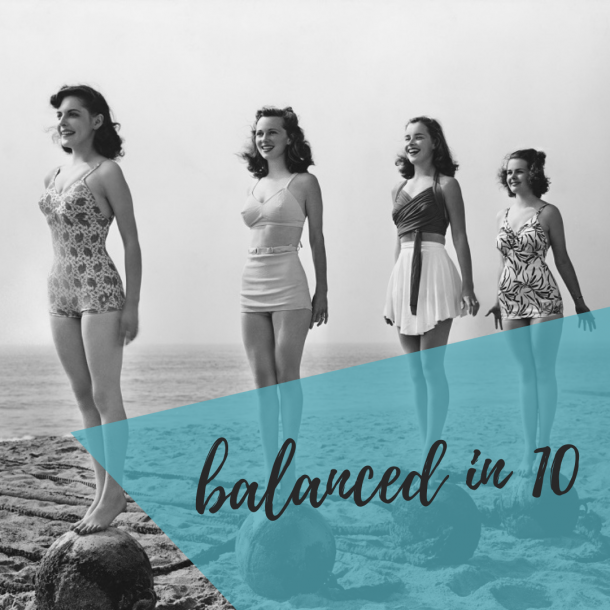If I was forced to choose just one wellness ‘thing’ to focus on for a positive impact on my wellbeing, health and quality of life, I’d go with reducing stress.
The implications of chronic, persistent stress are well documented – it’s linked to heart disease, obesity, Alzheimer’s, diabetes, gastro issues, autoimmune diseases – largely through the inflammation caused by our internal stress response.
It’s also a major hormone disrupter, especially in midlife, but more on that another time.
Aside from all that, it’s also not real pleasant to feel stressed all the time.
But telling women they need to reduce stress often elicits more stress.
It’s not that we don’t know something needs to change, or that we don’t want to feel less stressed – we do – but there’s usually an accompanying belief that there’s no way to reduce stress when you have kids to raise, jobs to do, bills to pay (and throw in a pandemic to boot) and so the suggestion simply creates another thing to stress about.
While it’s true that those are big ticket stressors that are long-term and persistent, they are not necessarily, in and of themselves, what is making us feel stressed every day, or what we need to adjust in order to feel better.
On a day-to-day basis, we are often suffering from over-stimulation stress.
This is the kind of every day constant stress we bring upon ourselves through our habits and behaviours, and also the kind we can easily reduce or remove.
What is over-stimulation stress?
In a typical, first-world lifestyle our physiological system is constantly bombarded by stress-inducing triggers.
Our body and brain are essentially ‘on’ all the time – always in flight or fight mode – and our sympathetic nervous system is constantly triggered releasing stress hormones cortisol and adrenalin, and creating a strain on our body that results in inflammation as it tries to protect and repair itself.
We are chronically over-stimulated – mind and body – through what we do and what we consume, both mentally and physically and not only is it impacting us internally, but it’s also exhausting.
Over-stimulation stress looks like …
- busyness – that tension from rushing and jumping from one thing to the next as you try to get everything done each day;
- overwhelm and overthinking – the pressure of a never-ending to do list and constant mental dialogue that goes with it;
- information overload – social media, internet, TV, radio creating mental fatigue and exhaustion;
- caffeine and alcohol – mainstays of a lot of women’s mornings and nights that increase the stress hormone cortisol and keep us wired;
- sugar – it triggers a release of cortisol and keeps your nerves jangled;
- intense exercise – workouts or training that is long or hard causes a stress response in the body and can work against women, particularly in midlife;
- sleeplessness – disturbed sleep doesn’t just make you tired, it messes with your cortisol (and other hormone) levels.
Daily life in Western societies feature all of these regularly, persistently, and often, mindlessly. They are a normal and accepted part of our existence, so we rarely stop and think about how they affect us and if they may even be … optional.
They are though easy to avoid, if not completely, then at least partially.
Over-stimulation stress is completely of our own doing, and so too is the antidote.
Turning life down a notch
In his book The Blue Zones: 9 Lessons for Living Longer from the People Who’ve Lived the Longest, Dan Buettner researched the communities around the world where people lived the longest, to discover what it was that contributed to their longevity.
One of the lessons he noted was the concept of down shift – that the people in these blue zones have daily rituals as a part of life that reduce stress and therefore, also reduce inflammation associated with stress.
It wasn’t that they didn’t experience similar life stress to other communities – but that their way of life included elements that protected them from feeling or being stressed. Their lifestyle included plenty of time to socialise, a lack of busyness, spiritual practices, inter-generational connection and forms of mindfulness (the stopping to smell the roses idea).
Applying the down shift lesson, Buettner said, meant turning down the noise by: minimising time spent with TV, radio and the internet; planning to be early so as to allow you to slow down rather than rushing; and meditating.
So much of our stress is being created for us as we follow our Western society norms, where profits often come before people, and gaining wealth, property, belongings and status drives a way of life that never seems to be quiet, still or relaxed.
We aim or try to ‘include’ relaxation or health in our schedule, like last-minute obligations, often feeling stressed about how to make that happen in the first place, and paradoxically, creating more busyness in the process.
Simply turning off some of the stimulation though, requires no extra time, costs no extra money or resources, and needs no new or specific skills.
Here’s how I try:
Go slow. I drive slower than than speed limit and consciously slow down, especially if I feel stressed or tense. It’s surprising just how much calmer and more relaxed you feel simply by lifting your foot off the accelerator a little and cruising.
Breathing. Most of us don’t breathe properly. We race around taking shallow, quick breaths because we’re busy, and this type of breathing is a signal to our body that we are in trouble, and so it triggers a stress repsonse and the release of stress hormones cortisol and adrenalin. Taking deep, slow breaths however, is a signal to your brain and body that you are calm, relaxed – not in danger. And so it switches off that internal stress and your body is calm. I regularly stop and take some deep, slow breaths.
Outside with nature. I try every day to spend some time outside paying attention to the natural environment around me. Some mornings it will be at my local beach, often it will be sitting in my backyard or standing in my front yard. Research shows just 10 minutes in nature reduces stress and makes you feel happier. It’s shown to reduce your heart rate and blood pressure. You don’t have to do anything special to get the benefits either – sitting or walking are enough.
Cut, reduce or manage coffee and alcohol. I don’t drink much of either and I do have some boundaries around consumption that I try to stick to. Your cortisol levels are naturally meant to be high in the morning, and gradually decrease over the day – it helps you get going in the morning, but lowers so you can sleep at night. So I have one coffee in the morning and never after 11am (if I ever try a second, I find I pay for it with heart palpitations, jitters or feeling off). If I have a wine on the weekend, I limit myself to two and don’t drink after dinner so as it doesn’t keep my awake at night.
Exercise that’s gentle or short and sharp. I choose to either walk, do a yoga class, or 15 minute Pilates or HIIT classes. Hard core exercise causes inflammation in the body, and for women in perimenopause, it can be particularly counter productive as elevated cortisol levels interfere with estrogen and progesterone production. My approach is – if it’s gentle, do it for longer; if it’s intense, make it short.
Sweet enough. I try and avoid sugar – but I can tell you if I do eat some conventional ‘junk’, I do not sleep well.
Switch off. Over 2020, I’ve spent waaaaaaay too much time online and not only has the news been stressful, but so has the act itself. I’ve been working on switching off and going back to better tech habits. We’re not big TV watchers for the most part – although again, there’s been more of it over 2020. I’d love to have no TV in the household at night. Surprisingly, this is gaining some acceptance here. It’s such a more pleasant, calming and homely atmosphere when there’s no TV noise.
Meditate. My consistency is tragic. I’m trying to do better and develop a daily habit. I always feel better when I do it.
The overall result, is a reduction in that jangled feeling, and a greater sense of wellbeing and calm – with no change whatsoever to my obligations that would otherwise be blamed for my stress – that is, kids, bills, pandemic.
Tackling over-stimulation stress doesn’t remove the life issues that are stressful. It does help you approach them in a more steady way though.





